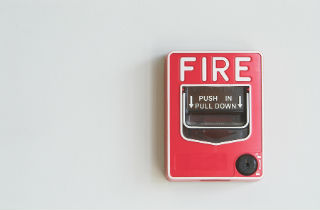Weekend relapse prevention checklist – study and keep with you!
- Don’t schedule intense therapy sessions on Friday.
- Recognize high levels of stress. Learn to meditate, read, and pray.
- Emotional self-assessment is a priority heading into the weekend.
- Study your warning signs and triggers Friday, Saturday, and Sunday mornings.
- Who not to see on weekends.
- Where not to go on weekends.
- Make sure you have a sponsor, meeting, friend, and/or family member available.
1. Schedule intense therapy sessions earlier in the week
There may be nothing worse than attending intensive therapy prior to the weekend. Even though the idea of therapy is intended to be constructive and helpful, it is always wise to understand that intensive, emotionally charged sessions will stir up feelings that may or may not get resolved during a 50 minute session.
I’m not saying to avoid therapy sessions, because true resolve comes from walking through those feeling. What I am saying is that one needs to have everything in place after therapy sessions to make sure they are not a prime candidate for relapse.
So, when scheduling therapy, have a sponsor and meeting follow-up to process emotionally charged feelings. And don’t expose yourself to being alone for a week-end of isolation right after Friday therapy session.
2. Stress relief
Relationships, long hours on the job, unhealthy family members, financial strains all cause high level of stress. Beginning everyday with a safe effective routine of prayer and scripture reading is a wonderful routine to establish. Focus on relaxation daily.
If you find yourself stressed out, irritable, anxious, then apply breathing techniques to slow down your heart and focus. Deep breathing exercise, when done correctly, is one quick way to refocus on what is important in life.
3. Emotional self-assessment
This assessment is usually a struggle point for most addicts. They have learned not to feel, because feelings are to be avoided. I have found that using a checklist to be very helpful for most people.
Create a simple form that has an exhaustive list of emotional triggers: anger, fear, guilt, shame, anxiousness, sadness, etc. and put a blank line after each one. On a scale of 1 -10 score your current feelings with each emotion.
To save paper, you could set up seven columns, one for each day of the week and then make 10 copies. That will cover daily assessments for 10 weeks. Be consistent and follow through each day.
Now examine your daily emotions and identify the source (EX: Anger – conflict with spouse). Try to process the ‘bigger picture’ in the grand theme of things. Is the conflict with your spouse worth risking relapse or putting a wall up between the two of you?
4. Have a relapse prevention plan
Recognize warning signs and triggers.
This should already be a part of your relapse prevention plan. It is vital to recognize what causes you to relapse. For some, it could be the smell or sight of alcohol/drugs. For others, it might be certain people, places or things.
Take a look at your history of relapse. Go back step by step and identify key triggers and warning signs. This will probably consist of thoughts that creep up in your mind that you may have quickly dismissed.
Sometimes those thoughts are filled with wisdom and are meant to help you make the right decision. Other thoughts may be filled with poison, and to listen and act on them can and will be disastrous. Learn to respond to the healthy ones.
5. Identify who not to see on weekends
This is simple and obvious, but if ignored, you will find yourself saying, “What happened?” I was so certain I would be OK. Don’t surround yourself with old friends that are using buddies. Period!
If you drink alcohol, don’t hang out with others who do; plain and simple. That was a huge part of my life and to give that up was very hard, but necessary. I look back now and realize our relationships were mostly based on drinking, and very little else. Find new friends who have the same goal to live an addiction free life. There are thousands of new friends waiting to happen.
6. Identify where not to go on weekends
Once again, this one is a no brainer, but our minds will tell us different. We must abstain from places of the past where we acted out. I can’t stress this enough. Our senses will become an instant trigger and regret will quickly set in.
Now, this might seem hard to do, if you act out at home (closet addict). The most effective way to deal with this, is to be totally accountable to a mentor or sponsor. When you are alone, you need a backup to deal with the self-talk, like; you won’t get caught, no one will ever know. You must learn to be open and honest with others, and then utilize that relationship during your obsessions to act out.
7. 12 Step program support
Keep in touch with a sponsor, friends, and meetings. Identify phone numbers, websites, meetings, and a list of people who you can and will fall back on. Remember, someday you will be there for others. Right now, allow others to be there for you.









Related Posts